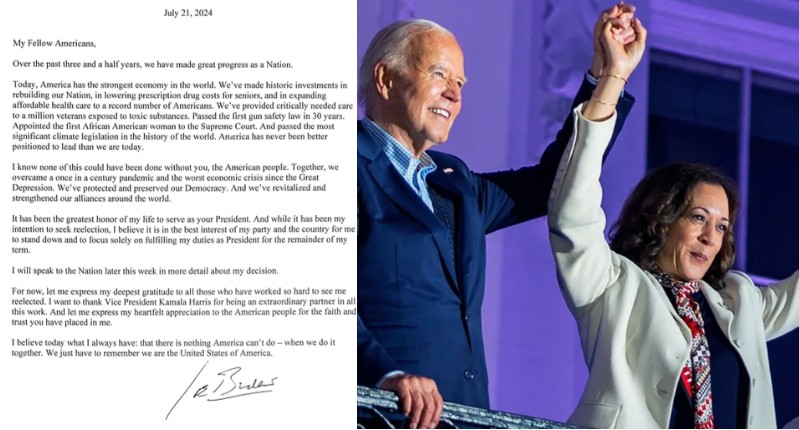In her highly anticipated memoir, Christine Blasey Ford reemerges into the public eye, unveiling startling revelations that reverberate through the corridors of power. As the central figure in the contentious confirmation hearings of Supreme Court Justice Brett Kavanaugh, Christine Blasey Ford courageously reaffirms her allegations of sexual assault, unleashing a torrent of memories that have lingered for decades. With unwavering conviction, she recounts the traumatic events of a fateful high school party, where she alleges Kavanaugh’s assault left her gripped with terror, fearing for her very existence. Through her poignant prose, Christine Blasey Ford offers readers an intimate glimpse into the depths of her anguish, vividly capturing the visceral fear that consumed her during the ordeal.
Christine Blasey Ford’s harrowing narrative not only sheds light on the alleged assault but also underscores the enduring consequences it has wrought upon her life. With meticulous detail, she lays bare the psychological toll of her experience, revealing how the specter of that traumatic night continues to haunt her to this day. By sharing her story with unflinching candor, Christine Blasey Ford challenges societal norms and confronts the pervasive culture of silence surrounding sexual violence. As her memoir resonates with readers across the globe, Ford emerges as a beacon of courage and resilience, inspiring others to break their silence and demand accountability in the pursuit of justice.
Christine Blasey Ford Alleges Sexual Misconduct by Kavanaugh Despite Denials: A Compelling Narrative Unfolds
In a tense saga unfolding amidst the highest echelons of American jurisprudence, Christine Blasey Ford stands resolute in her allegations of sexual misconduct against Supreme Court Justice Brett Kavanaugh. Despite Kavanaugh’s vehement denials, Christine Blasey Ford’s unwavering testimony continues to cast a shadow over his judicial credibility. In a recent Fox News interview, Kavanaugh maintained his innocence, further fueling the controversy surrounding the events of 1982. However, Ford’s steadfast insistence on the veracity of her claims underscores the gravity of the situation and raises profound questions about the character expected of a Supreme Court justice.
Christine Blasey Ford’s refusal to yield in the face of Kavanaugh’s denial speaks volumes about the enduring impact of the alleged incident on her life. Her disappointment in Kavanaugh’s defense only serves to fortify her conviction that justice must prevail, regardless of the stature of those involved. As the narrative unfolds, the public is left grappling with the complex interplay of power, credibility, and accountability within the highest realms of authority. The clash between Ford’s unwavering testimony and Kavanaugh’s steadfast denial sets the stage for a pivotal moment in American judicial history, with far-reaching implications for the integrity of the Supreme Court.
Christine Blasey Ford’s Hope for Accountability
Dr. Ford candidly shares her profound disappointment and deep-seated hope that Justice Kavanaugh would voluntarily resign from his position to alleviate the intense scrutiny both of them endured. With poignant introspection, she underscores the imperative of maintaining unwavering standards for Supreme Court justices, emphasizing the need for integrity and moral rectitude in those entrusted with interpreting the nation’s laws. Dr. Ford’s introspective reflections on whether Kavanaugh’s categorical denial reflected his true character resonate with readers, prompting contemplation on the complex interplay between personal integrity and professional responsibilities.
Furthermore, Dr. Ford’s unwavering pursuit of accountability and her unwavering determination to confront her alleged assailant underscore her remarkable courage and unwavering commitment to the pursuit of justice. By bravely stepping into the spotlight and sharing her truth, she not only sheds light on her own ordeal but also serves as an inspiration for countless others who have faced similar challenges. Her memoir serves as a powerful testament to the resilience of the human spirit and the enduring importance of holding individuals in positions of power accountable for their actions. Through her courageous narrative, Dr. Ford amplifies the voices of survivors and advocates for a more just and equitable society.
The Power of Apology
Ford delves into a hypothetical scenario wherein Kavanaugh extends an apology for the alleged assault. She navigates through the intricate layers of emotions and implications such a gesture would carry, particularly for survivors of sexual violence. Ford’s thoughtful examination underscores the profound impact acknowledgment and remorse from perpetrators can have on survivors, shedding light on the nuanced dynamics of forgiveness and healing.
Through her introspection, Ford not only explores the potential effects of Kavanaugh’s hypothetical apology but also delves into the broader societal conversation surrounding sexual assault and accountability. By contemplating the significance of acknowledgment and remorse, she offers valuable insights into the complexities of forgiveness, emphasizing the importance of genuine remorse and accountability in the healing process for survivors. Ford’s reflective analysis serves as a poignant reminder of the power dynamics at play in cases of sexual violence and the transformative potential of sincere apologies in fostering healing and reconciliation.
The Kavanaugh Confirmation: A Divisive Political Saga
The confirmation of Brett Kavanaugh to the Supreme Court ignited a firestorm of political discord, exposing deep divisions within American society. The allegations of sexual assault leveled against Kavanaugh by Dr. Christine Blasey Ford thrust the confirmation process into the national spotlight, amplifying the already intense scrutiny surrounding the nominee. President Trump’s unwavering support for Kavanaugh further polarized public opinion, with many viewing his appointment as emblematic of broader cultural and political clashes. As the nation grappled with questions of credibility, accountability, and judicial integrity, the confirmation hearings morphed into a battleground for competing ideologies, leaving a lasting impact on the political landscape.
Against the backdrop of Kavanaugh’s controversial confirmation, the upcoming election assumes heightened significance. Dr. Ford’s courageous testimony not only highlighted the importance of accountability in leadership but also served as a rallying cry for those seeking to address systemic issues of gender-based violence and power dynamics. As voters weigh the implications of Kavanaugh’s presence on the highest court in the land, the lines between law, politics, and public perception blur. The outcome of the election will undoubtedly shape the trajectory of judicial appointments and influence the course of American jurisprudence for years to come. In this charged political climate, Kavanaugh’s confirmation stands as a stark reminder of the enduring impact of judicial nominations on the fabric of society.
Dr Christine Blasey Ford Calls for Accountability and Decisive Action
In her memoir, Ford’s impassioned narrative reignites fervent calls for accountability and decisive action. Through searing prose, she unequivocally condemns what she perceives as a glaring absence of remorse from Kavanaugh, effectively aligning his behavior with broader societal patterns of entitlement and misogyny. By intertwining personal experience with social critique, Ford compellingly underscores the urgency of holding both Kavanaugh and President Trump accountable. This resolute stance not only highlights the gravity of the upcoming election but also underscores the imperative of addressing systemic issues of power and privilege that pervade the fabric of society.
As Ford’s memoir reverberates through public discourse, it serves as a poignant reminder of the intricate nexus between personal trauma and societal change. Her courageous testimony not only amplifies the voices of survivors but also galvanizes a collective call for justice and reform. By contextualizing her experience within a broader framework of power dynamics, Ford underscores the interconnectedness of individual actions and systemic structures. This potent narrative not only elevates the discourse surrounding gender-based violence but also underscores the imperative of fostering a culture of accountability and empathy. Through her memoir, Ford emerges as a powerful advocate for societal transformation, compelling readers to confront uncomfortable truths and embark on a journey towards meaningful change.
Table of Contents
Discover more from OGM News NG
Subscribe to get the latest posts sent to your email.














